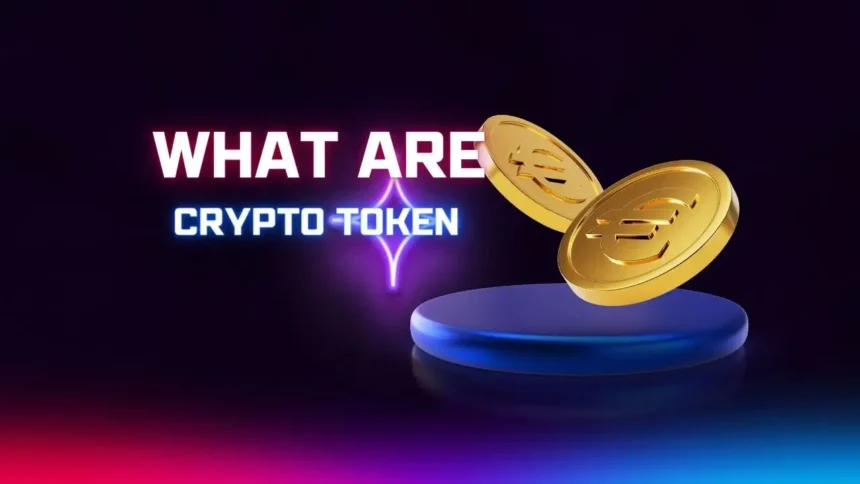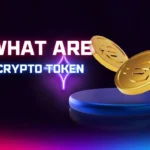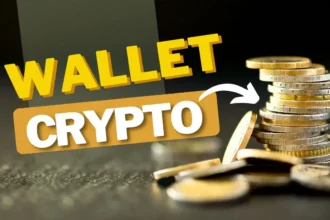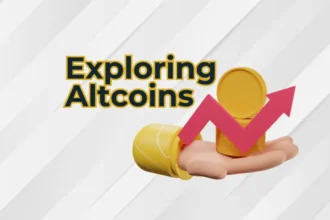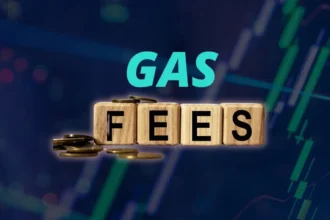In a world transitioning to digital economies, grasping the concept of crypto tokens is crucial. They are the building blocks of this new age, influencing various sectors from finance to art. Understanding them is akin to decoding the language of the future, a future where digital and physical realms converge.

What Are Crypto Tokens?
Definition and Basics
Crypto tokens are digital assets created on a blockchain. Unlike cryptocurrencies like Bitcoin, which operate on their own blockchains, tokens utilize existing blockchains to function. They represent a diverse array of assets, rights, and utilities.
How Tokens Differ from Coins
Coins like Bitcoin and Ethereum are digital currencies that exist on their own blockchains. Tokens, however, are built on top of these blockchains and can represent various assets or utilities within specific ecosystems.
The Genesis of Crypto Tokens
The concept of tokens took root with Ethereum, which introduced the idea of programmable contracts or smart contracts. This innovation allowed for the creation of tokens that could perform specific functions beyond simple currency transactions.
The Heart of Blockchain Technology
At the core of blockchain lies the decentralized ledger, a secure and immutable record of transactions. Tokens leverage this technology to offer a range of functionalities, from voting rights in decentralized organizations to representing real-world assets digitally.
Types of Crypto Tokens
Utility Tokens
Utility tokens provide access to a product or service within a blockchain ecosystem. They are like the keys to a digital kingdom, unlocking features and functionalities.
Examples and Uses
Tokens like Binance Coin (BNB) and Chainlink (LINK) serve as utility tokens, enabling users to access various services on their respective platforms, from trading fee discounts to decentralized oracle services.
Security Tokens
Security tokens represent ownership or stakes in an asset, subject to federal regulations. They are akin to digital stocks, blending traditional finance with blockchain technology.
Regulatory Aspects
These tokens are regulated and must comply with securities laws, ensuring investor protection and legal clarity. They offer dividends, profit shares, and voting rights, much like traditional securities.
Governance Tokens
Governance tokens bestow voting power upon their holders, influencing the development and decision-making processes within blockchain projects.
Voting Power and Influence
Tokens like Uniswap’s UNI and MakerDAO’s MKR allow holders to propose and vote on protocol changes, ensuring a decentralized and democratic governance model.
Asset-Backed Tokens
These tokens represent real-world assets like gold, real estate, or even fiat currencies, bridging the gap between traditional and digital finance.
Real-World Asset Representation
Stablecoins like Tether (USDT) and Paxos Standard (PAX) are examples, providing the stability of real-world assets while benefiting from blockchain’s security and efficiency.
The Creation of Crypto Tokens
Token Standards (ERC-20, BEP-20, etc.)
Tokens are created following specific standards that ensure compatibility and functionality across platforms.
Ethereum and Its Dominance
The ERC-20 standard on Ethereum is the most widely used, allowing for the seamless creation and integration of tokens.
Binance Smart Chain and Others
BEP-20 on Binance Smart Chain offers similar functionalities, providing a faster and cheaper alternative to Ethereum.
Smart Contracts and Their Role
Smart contracts are the backbone of token functionality, automating and securing transactions without intermediaries.
Automating Agreements
They execute predefined actions when specific conditions are met, ensuring trust and efficiency.
Ensuring Security and Trust
By eliminating the need for third parties, smart contracts reduce the risk of fraud and increase transaction security.
The Ecosystem of Crypto Tokens
Exchanges and Trading
Crypto tokens thrive within the bustling marketplaces of exchanges, where they are bought, sold, and traded.
Major Crypto Exchanges
Platforms like Binance, Coinbase, and Kraken are major hubs for token trading, offering a plethora of tokens and trading pairs.
Trading Pairs and Liquidity
The availability of various trading pairs and liquidity options ensures a vibrant and dynamic market, enabling seamless transactions.
Wallets and Storage
Secure storage of tokens is paramount, with various wallet options catering to different needs.
Hot Wallets vs. Cold Wallets
Hot wallets are connected to the internet and offer convenience for frequent transactions, while cold wallets provide offline storage for enhanced security.
Security Measures and Best Practices
Adopting best practices like using hardware wallets, enabling two-factor authentication, and keeping private keys secure is essential for safeguarding assets.
The Utility and Benefits of Crypto Tokens
Decentralized Finance (DeFi)
Tokens are the lifeblood of DeFi, a burgeoning sector that democratizes financial services.
Lending and Borrowing
Platforms like Aave and Compound allow users to lend and borrow assets, earning interest and enhancing liquidity.
Yield Farming and Staking
Yield farming and staking enable users to earn rewards by providing liquidity or participating in network security.
Non-Fungible Tokens (NFTs)
NFTs are unique tokens representing ownership of digital assets, revolutionizing the realms of art and collectibles.
Digital Art and Collectibles
Artists and creators can tokenize their work, ensuring provenance and enabling direct sales to collectors.
NFT Marketplaces
Platforms like OpenSea and Rarible facilitate the buying and selling of NFTs, creating vibrant digital marketplaces.
The Future of Crypto Tokens
Emerging Trends
The future of crypto tokens is ripe with possibilities, driven by innovation and technological advancements.
Tokenization of Everything
From real estate to intellectual property, the tokenization of assets is poised to transform various industries.
Interoperability Among Blockchains
Efforts to enhance interoperability will enable seamless interactions across different blockchain networks.
The Role of Crypto Tokens in the Metaverse
Crypto tokens are set to play a pivotal role in the metaverse, the next frontier of digital interaction.
Virtual Economies
Tokens will power virtual economies, enabling transactions, ownership, and value exchange within digital realms.
Digital Ownership
Tokens will ensure secure and transparent ownership of digital assets, from virtual real estate to digital art.
FAQ
What distinguishes a crypto token from a cryptocurrency coin?
Crypto tokens are built on existing blockchains and represent various assets or utilities, while cryptocurrency coins operate on their own blockchains as digital currencies.
How are crypto tokens created and issued?
Tokens are created using blockchain standards like ERC-20 and BEP-20, with smart contracts defining their functionality and issuance.
What are the main risks associated with investing in crypto tokens?
Market volatility, regulatory uncertainty, and security concerns are significant risks, requiring careful consideration and robust security practices.
How do governance tokens impact blockchain projects?
Governance tokens allow holders to vote on protocol changes and development decisions, ensuring a decentralized and democratic governance model.
What role do crypto tokens play in decentralized finance?
Crypto tokens enable various DeFi services like lending, borrowing, yield farming, and staking, democratizing access to financial services and enhancing liquidity.

